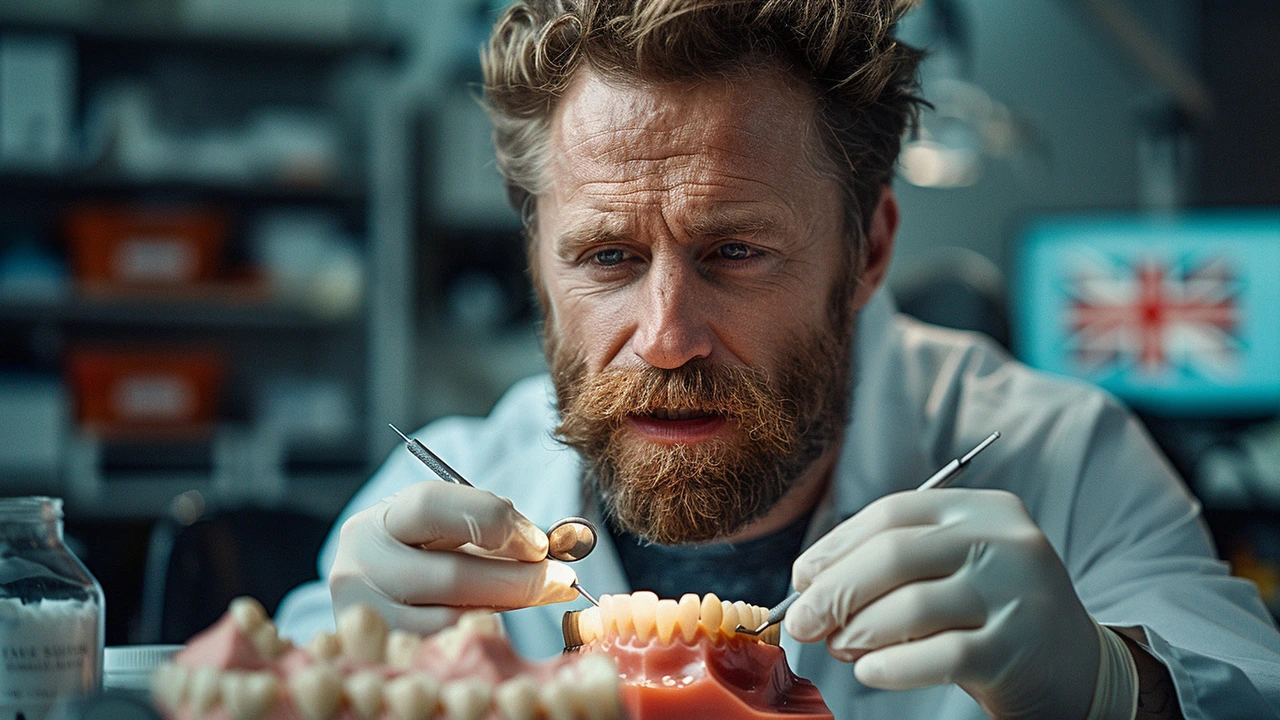
Unveiling the Hidden Enemy: Dental Calculus Under the Gums
When we talk about dental health, the spotlight often lands on cavities and visible tartar buildup. However, lurking beneath the surface, an unseen foe can wreak havoc on our gums and overall oral hygiene: dental calculus under the gums. Often undetected in its early stages, this form of calculus is a hardened form of dental plaque that has firmly attached itself to the surfaces of teeth, especially under the gum line. Understanding its causes and risks can be a game changer for our oral health.
But why exactly is this under-the-gum calculus more troubling? Aside from being a prime spot for bacteria to thrive, it's out of reach of regular brushing and flossing. Over time, it leads to inflammation, a condition widely known as gingivitis. Ignoring gingivitis can escalate to periodontitis, a severe gum disease that results in tooth loss and can even affect overall health. Now, you might think, "How does it accumulate there in the first place?" Well, it all starts with the food we consume and our oral hygiene practices. Simple carbohydrates and sugars are feasts for oral bacteria, which in turn release acids. These acids, combined with saliva and other particles, form plaque. If plaque isn't removed effectively, it hardens into calculus. Hence, the battle against gum-dwelling calculus begins with prevention.
The Arsenal Against Gum Disease: Treatment Options Explored
The journey to reclaim your oral health from the clutches of dental calculus beneath the gums involves a combination of professional treatments and diligent personal care. The first line of defense is often a visit to the dentist for an assessment. Here, tools like ultrasonic scalers and hand instruments are employed in a procedure known as scaling and root planing. This treatment meticulously removes calculus deposits and smoothens the tooth root to prevent reattachment.
But treatment doesn't stop at the dental office. Home care plays a pivotal role in preventing the recurrence of calculus buildup. Incorporating proper brushing techniques, flossing daily, and using antiseptic mouthwashes can fortify your gums against future attacks. Recent advancements in oral care, including electric toothbrushes and water flossers, offer additional support in reaching those hard-to-clean spots beneath the gums.
For cases that transcend the capabilities of scaling and root planing, more advanced treatments like laser therapy and surgical intervention may be necessary. Laser therapy targets and removes infected gum tissue, promoting regeneration of healthy gums. Surgical options, on the other hand, involve reshaping the gums to eliminate deep pockets where calculus and bacteria flourish. These treatments underscore the importance of early detection and intervention to avoid severe gum disease and its complications.
Prevention: Your Personal Shield Against Gum Disease
While the battle against dental calculus may seem daunting, equipping ourselves with the knowledge and tools for prevention truly makes a world of difference. Achieving and maintaining optimal oral hygiene is a lifelong commitment that pays dividends for our overall health. Simple yet effective practices like brushing twice daily with fluoride toothpaste, flossing regularly, and making routine visits to the dentist are the cornerstones of dental health.
Embracing a healthy diet also plays a crucial role in preventing plaque and calculus formation. Foods rich in fiber, for instance, stimulate saliva flow, which is nature's way of cleaning our teeth. Limiting the intake of sugary and acidic foods can minimize the risk of plaque buildup. Moreover, staying informed about the latest in dental health and treatments empowers us to make better decisions for our oral care regimen.
In conclusion, understanding the risks and treatments for dental calculus under the gums is just the beginning. It's the actions we take daily, from diligent oral care to choosing healthier foods, that keep the threat of gum disease at bay. Let's not underestimate the power of prevention and the impact of early treatment. Our smiles, and indeed our overall health, depend on it.
Write a comment
More Articles

Choosing Between Clear Aligners and Traditional Braces: What's Best for Your Smile?
Deciding between clear aligners and traditional braces can be complex and requires understanding the pros and cons of each. This article delves into the effectiveness, aesthetics, comfort, and costs associated with both options to help you make an informed decision. Discover insightful comparisons, expert opinions, and real user experiences that bring clarity to this critical choice in your orthodontic journey. Whether you're seeking a virtually invisible treatment or a more traditional approach, this article provides you with the knowledge needed to choose the best option for your dental health and lifestyle.

How to stop tooth decay?
Hey folks, today I'm sharing some useful tips on how to stop tooth decay. Let's dive into the importance of oral hygiene and how it can be your strongest ally against tooth decay. I'll also talk about how a healthy diet plays a crucial role in maintaining good dental health. So, if you're concerned about tooth decay or just want to keep those pearly whites shining, this post is going to be a must-read!

Identifying Cracked Teeth: Tips and Signs to Watch For
Hey there! If you've ever been puzzled about whether you've got a cracked tooth, I totally feel you. It's not always a walk in the park to figure out, but I've gone through it and can share some signs you've gotta watch for. I'll let you in on how pain when chewing might be a telltale sign, plus I’ll chat about how those pesky cracks can hide from x-rays. And get this – sometimes a little sensitivity to hot or cold can clue you in too. Stick around and I'll walk you through all the little tips to help you catch those sneaky cracks early. Promise, by the end, you'll feel like a bit of a tooth detective yourself!



